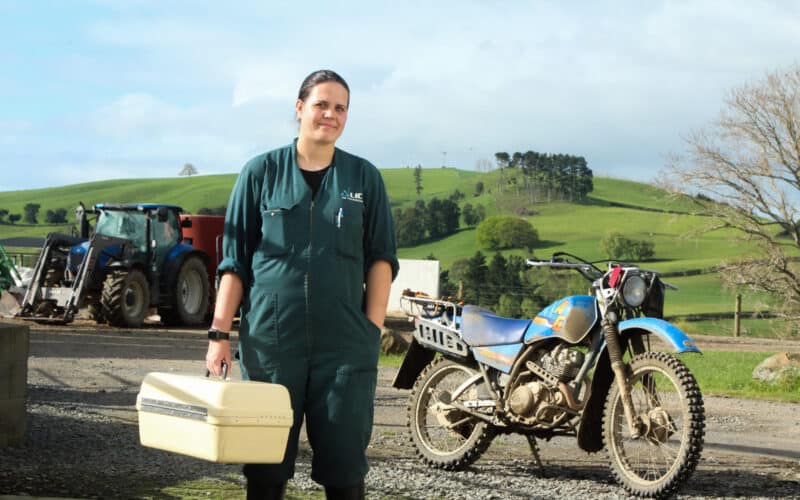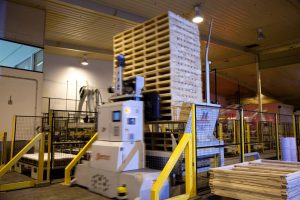
Mating time is arguably the most important event on a dairy farm’s calendar. And every September, 900 people around the country gear up to help create the next generation of New Zealand’s milking herd.
LIC Regional Artificial Breeding Operations manager Glen Wilke says the job is a vital cog in the whole industry.
“AB is an essential part of the season; there is a short window and you’ve got to get it right,” he says. “Our technicians have a great deal of pride seeing calves on the ground.”
Wilke trained as an AB technician in 1981, having already worked for LIC as a management cadet. After three seasons as an AB technician, he took on a role with LIC in the Canterbury area as a training supervisor.
Today, his role is one of eight across New Zealand. Each regional operations manager oversees between three and five AB supervisors, each in turn working with 30-35 technicians.
Wilke oversees around 120 technicians, with 15-16 of them currently completing an apprenticeship.
His role has a broad set of responsibilities, from interviewing new applicants to training, co-ordinating AB runs and organising contracts.
He says a wide variety of people apply to become AB technicians.
“We have a lot of vet assists; we also see out-of-season shearers, beef and sheep farmers with some extra time on their hands, and also a lot of people from urban backgrounds, such as women seeking part-time work that fits around their families,” Wilke says.
“We even have a police officer that uses his AB run to decompress from the challenges of his job.”
Kyla Martin Hall from Hamilton is one of his technicians. She works for DairyNZ in its science support team, and applied to become a technician in 2021.
“It was working with animals that really drew me to the job,” she says.
“I also have a young daughter, so a job that finished at midday most days was a real bonus.”
Training consists of completing and passing a two-week training course, then spending a year as an apprentice – working alongside an experienced technician and completing four national unit standards administered by Primary ITO. To round out the LIC 12-month programme, apprentices are required to pass a supervised refresher course in the autumn.
Martin Hall went out on her own in 2022.
With a Bachelor of Science degree from the University of Waikato, majoring in animal behaviour, Martin Hall says she loves her role as a technician.
“It’s awesome working with animals, and meeting all the farmers,” she says.
“You form a really good relationship with them; you’re with them every day for six weeks.”
She starts her run by the end of September and works until Christmas, or sometimes New Year. It is a seven-day-a-week job during the season, and at the peak she services 10 farms every day.
“I really, really enjoy it, and I will keep doing it for as long as they will have me,” she laughs.
“You’ll know if you don’t like it from early on in the training, but all of the trainees in my intake came out of training absolutely loving it.
“LIC is a positive workplace; it’s very supportive, and lots of fun.”
She says AB training is a good skill to have, even as a DIY option for farmers who may have a few lone cows to inseminate at the end of the season.
Wilke says he would encourage anyone interested in farming to “give it a crack”. With around 100 new AB technicians trained every year, those with an affinity for animals, good communication skills, basic computer literacy, a driver’s licence, an interest in the dairy industry and strong attention to detail are considered.
“It is a 2-3-month job, rather than a fulltime job, but there is a lot of satisfaction to be had,” he says. “The people you come in contact with are a real highlight – there are some real characters out there. It is also really satisfying seeing the calves on the ground.”
He says there are opportunities for progression with the possibility of becoming a supervisor or regional AB operations manager.
“I love seeing the technicians come through the ranks.
“I have witnessed many go through the interview process and train, and they have now been in the field for 20-30 years, becoming supervisors themselves. One technician has been there 55 years, and a lot have been with us 30-40 years.”




















